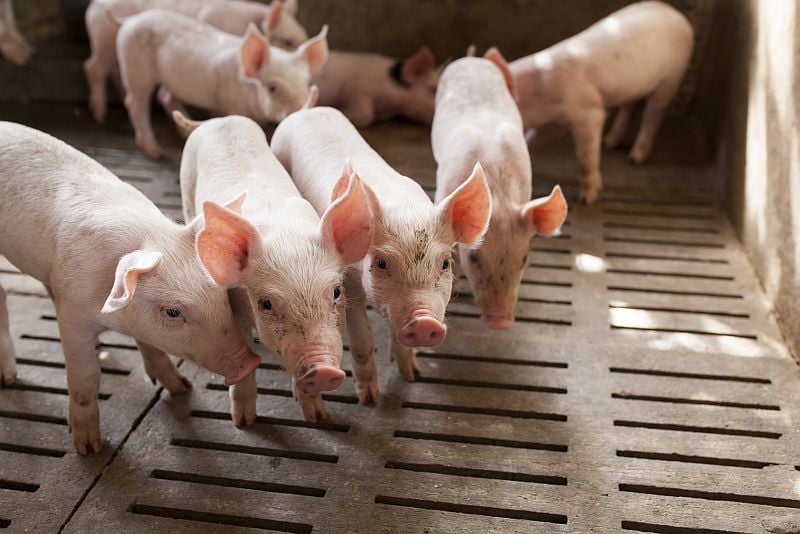Get Healthy!

- Cara Murez
- Posted June 29, 2022
Antibiotic-Resistant 'Superbug' Now Widespread in Pigs, Can Jump to Humans
A strain of the superbug MRSA has emerged in pigs that is highly resistant to antibiotics and a growing cause of human infections.
University of Cambridge researchers said this particular strain of MRSA, short for methicillin-resistant Staphylococcus aureus, has shown up in livestock over the past 50 years, probably due to widespread antibiotic use in farming. They said it is a potential threat to public health.
"Historically high levels of antibiotic use may have led to the evolution of this highly antibiotic-resistant strain of MRSA on pig farms," said Dr. Gemma Murrayn of the Wellcome Sanger Institute in Cambridgeshire, U.K. She worked on the new study while a member of the Department of Veterinary Medicine at the University of Cambridge.
"We found that the antibiotic resistance in this livestock-associated MRSA is extremely stable -- it has persisted over several decades, and also as the bacteria has spread across different livestock species," she said in university news release.
The strain - called CC398 - is dominant type of MRSA in pigs and other European livestock and a growing cause of human MRSA infections. It's associated with infections in people who have and have not had direct contact with livestock.
Although antibiotic use in European farming is lower than it once was, ongoing reductions in use are likely to have only a limited impact because the strain is so stable.
A notable case is in Danish pig farms. The proportion of MRSA-positive herds there increased from 5% in 2008 to 90% in 2018. Though pigs test positive for MRSA, it doesn't make them sick.
"Understanding the emergence and success of CC398 in European livestock - and its capacity to infect humans - is vitally important in managing the risk it poses to public health," said senior author Lucy Weinert of the University of Cambridge.
Three mobile genetic elements in the MRSA genome are responsible for its ability to infect humans.
To study the issue, researchers reconstructed the evolutionary history of two genetic elements called Tn916 and SCCmec. These confer antibiotic resistance in MRSA. They have remained stable in pigs for decades and persist when jumping to humans.
A third mobile genetic element called φSa3, which enables the CC398 strain of MRSA to evade the human immune system, was found to have frequently disappeared and reappeared over time, in both humans and livestock. This suggests that CC398 can rapidly adapt to human hosts.
"Cases of livestock-associated MRSA in humans are still only a small fraction of all MRSA cases in human populations, but the fact that they're increasing is a worrying sign," Weinert said.
The European Union is banning zinc oxide, which has been used to prevent diarrhea in piglets, because of concerns about its environmental impact and promotion of antibiotic resistance. This ban may not reduce the prevalence of CC398, the authors said, because the genes that confer antibiotic resistance are not always linked to those that confer zinc treatment resistance.
The World Health Organization considers MRSA one of the greatest threats to human health.
The findings were published June 28 in the journal eLife.
More information
The U.S. Centers for Disease Control and Prevention has more on MRSA.
SOURCE: University of Cambridge, news release, June 28, 2022




